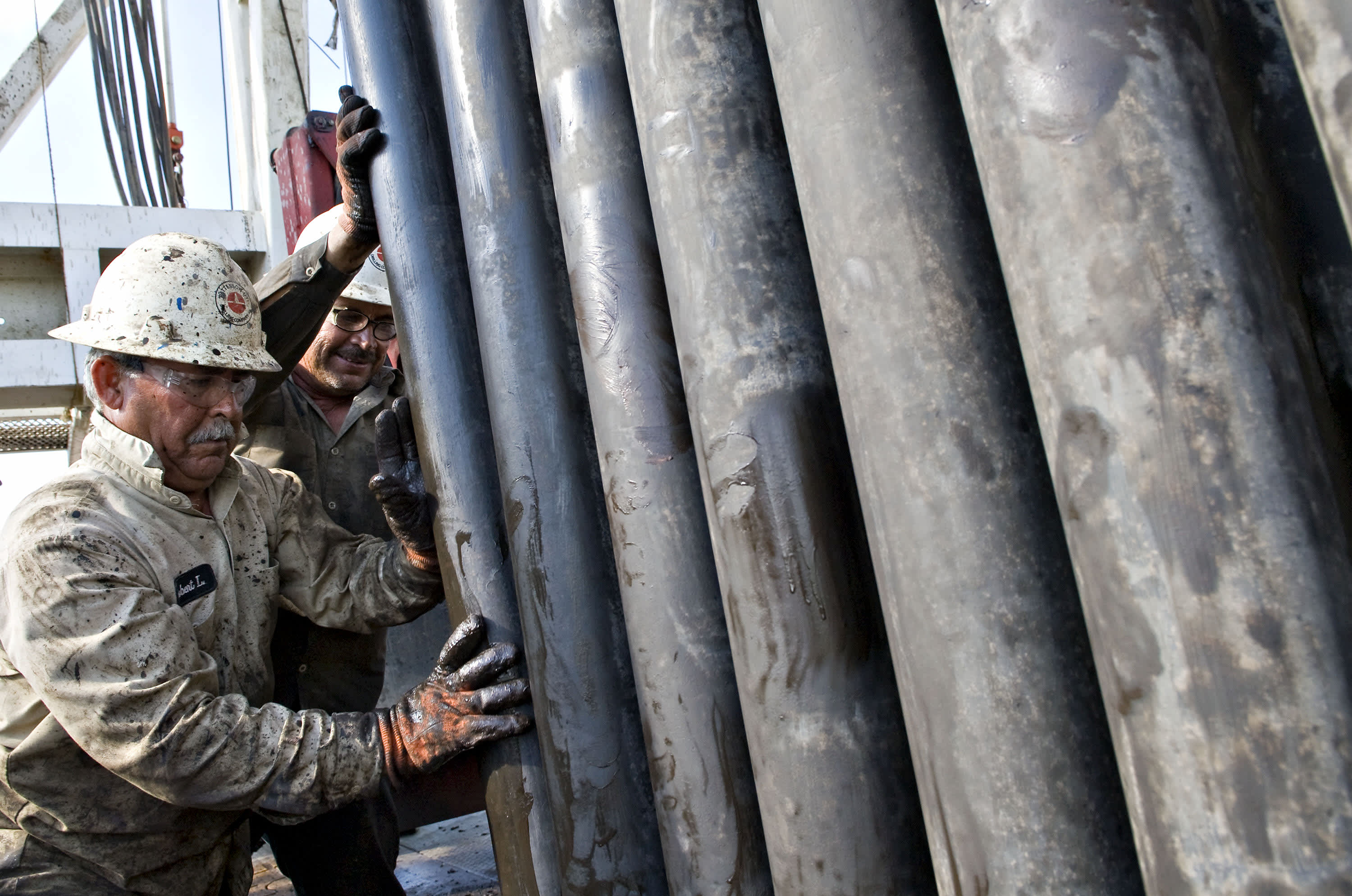
The chief executive of U.S. oil company Occidental Petroleum said that it would have been preferable if the Biden administration had asked shale producers closer to home to increase production and crude supplies, rather than the OPEC alliance that's led by Saudi Arabia.
Asked whether President Joe Biden and his team were getting it wrong by asking OPEC to pump more when there are shale oil producers at home, CEO Vicki Hollub said that "if I were gonna make a call, it wouldn't be long distance, it would be a local call."
"And I think that we could do it cheaply in the United States, as other countries can do," she told CNBC's Hadley Gamble at the Adipec energy industry forum in Abu Dhabi on Monday.
"I think first you, you stay home, you ask your friends, and you ask your neighbors to do it. And then if we can't do it, you call some other countries," she said.
Hollub's comments come after a period of dramatic energy price rises in recent months that led to the White House calling on OPEC and its oil-producing allies, a group known as OPEC+, to boost production in an effort to combat climbing gasoline prices.
The move came amid heightened worries that rising inflation could derail the economic recovery from Covid-19.
Read more: White House calls on OPEC to boost oil production as gasoline prices rise
The White House said that the oil producing group's July agreement to boost production by 400,000 barrels per day on a monthly basis beginning in August and stretching into 2022 is "simply not enough" during a "critical moment in the global recovery."
U.S. Energy Secretary Jennifer Granholm repeated those words to CNBC earlier this month, saying that oil-producing nations needed to increase supply "at this moment so that people will not be hurt during the winter months."
It was also put to Granholm that domestic oil production in the U.S. had abated over the last couple of years, even prior to the Covid pandemic, due to a lack of investment incentives.
"I don't know why at $80 a barrel those incentives are not there," she said.
"During Covid, it was down — they backed off because demand was not there because people were staying home, we know that. Now that things are back up, the production should be meeting that [demand], there has been rigs that have been added but not fully," she added.
U.S. supply bouncing back
There are signs that the U.S. might not need to look further than home for a boost to oil supplies with production in the U.S. already recovering after demand was hit during the pandemic.
The International Energy Agency said Tuesday that soaring oil prices, which have hit their highest price in seven years of over $80 a barrel amid rampant demand, could soon turn lower as the U.S. led a rebound in supply.
Read more: IEA sees a potential reprieve for soaring oil prices as U.S. ramps up production
The IEA revised its global oil supply forecast by 330,000 barrels per day higher for the fourth quarter to reach 99.2 million barrels per day by year-end. That's up 6.4 million barrels per day year-on-year.
The U.S. is forecast to account for 60% of non-OPEC+ supply gains next year, now forecast at 1.9 million barrels per day, although the country is not expected to return to pre-Covid levels until the end of 2022.
The comments from Occidental's Hollub come just days after the conclusion of the COP26 climate change summit where almost 200 countries signed up to pledges (with various timeframes) to cut methane emissions, end deforestation, curb the use of fossil fuels and their subsidies, offer more financial to poorer countries and "phase down" the use of coal.
Hollub said that the U.S. shale industry had to show the Biden administration that it was part of the energy transition.
"We can do what others can't do. And we have to convert ourselves. I think that we have to get a little bit ahead of policy otherwise we're never going to achieve our goals," she said.
"And some companies are going to do renewables and sort of diminishing their oil production a bit but picking up and doing wind and solar, which is absolutely needed. Our company, on the other hand, is doing more around what our expertise is: For 40 years, we've been managing CO2 for enhanced oil recovery. And so we're building our energy transition strategy on that and the infrastructure that we have in the Permian [Basin], which includes plants and pipelines that will support this strategy that we have. The Biden administration supports that," she said.
"We have to remove that CO2 from the atmosphere, we're going to do that with direct air capture, and we have to start putting carbon capture on industry as well. So both of those are supported not only by COP26, but by the Biden administration," she said.
That strategy, she added, "is going to enable the administration ultimately to not have to worry about where we get oil, who we ask to increase oil — as long as we can make our oil, lower emission and lower carbon through these other techniques, then it's not going to matter."
- CNBC's Sam Meredith contributed reporting to this story.
"oil" - Google News
November 16, 2021 at 08:54PM
https://ift.tt/3ClxrmS
U.S. shale has a message for the Biden administration: Ask us to increase oil production, not OPEC - CNBC
"oil" - Google News
https://ift.tt/2PqPpxF
Shoes Man Tutorial
Pos News Update
Meme Update
Korean Entertainment News
Japan News Update
Bagikan Berita Ini















0 Response to "U.S. shale has a message for the Biden administration: Ask us to increase oil production, not OPEC - CNBC"
Post a Comment